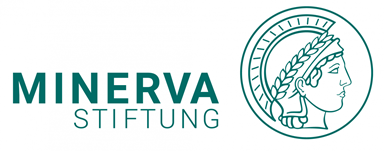Over the past few decades, innovation that takes place within the boundaries of a single organization has become increasingly rare. Instead, organizations collaborate with other organizations in order to generate innovative products and services (Powell et al., 1996). Examples for such organizational practices that open organizational boundaries for innovation include: strategic alliances (e.g., Inkpen & Tsang, 2007), open innovation (e.g., Dahlander & Gann, 2010), entrepreneurial or innovation ecosystems (e.g., Auschra et al., 2019), external corporate venturing focusing on inter-organizational collaboration between established companies and startups (e.g., Gutmann, 2019), digital platforms bringing together several organizations in order to reach common goals (e.g., Cusumano et al., 2019), and collective creativity to come up with new ideas and, even more important, implement them in organizations, inter-organizational arrangements and markets/fields (e.g., Hargadon & Bechky, 2006).
Processes of inter-organizational collaboration and innovation (Sydow & Berends, 2019) are important for the national economies of both Israel and Germany: both countries are classified as innovative economies, both provide attractive ecosystems for startups (e.g., in Tel-Aviv and Berlin respectively), and both share a long history of collaboration on the national, but also on the inter-organizational level, reaching far beyond the present support of transnational venturing. At the same time, Israel and Germany are very different with regard to their institutional environment. Consider, for instance, well-established differences in entrepreneurial orientation, financial support by private investors and public agencies, technological skills and labor market conditions. Hence, it comes as no surprise that different entrepreneurial communities have developed and have begun to interact in what may be called transnational technological and scientific communities (Oliver & Montgomery, 2010).
Who can participate or apply to do so
The Minerva School will host ten participants from Israel and ten participants from Germany, Austria, and Switzerland. If you actually do so, or plan to conduct process-oriented research on inter-organizational collaboration, creativity and innovation, you are invited to apply for participation.
The school starts on June 28th with an evening reception and will end at noon on July 1st. Accommodation costs in Berlin and for travelling to and from Berlin will be covered by the Minerva Stiftung (About us | Minerva Stiftung Gesellschaft für die Forschung mbH (mpg.de)).
Organizers
- Carolin Auschra & Jörg Sydow (both Freie Universität Berlin) together with
- Amalya Oliver (Hebrew University, Jerusalem) & Adi Sapir (University of Haifa, Haifa)
Keynote speakers
- Hans Berends (Vrije Universiteit Amsterdam)
- Moshe Farjoun (York University Toronto)
View the complete CfP here.
Submission deadline: 20 December 2022.
Minerva School: 28 June – 1 July 2023.
